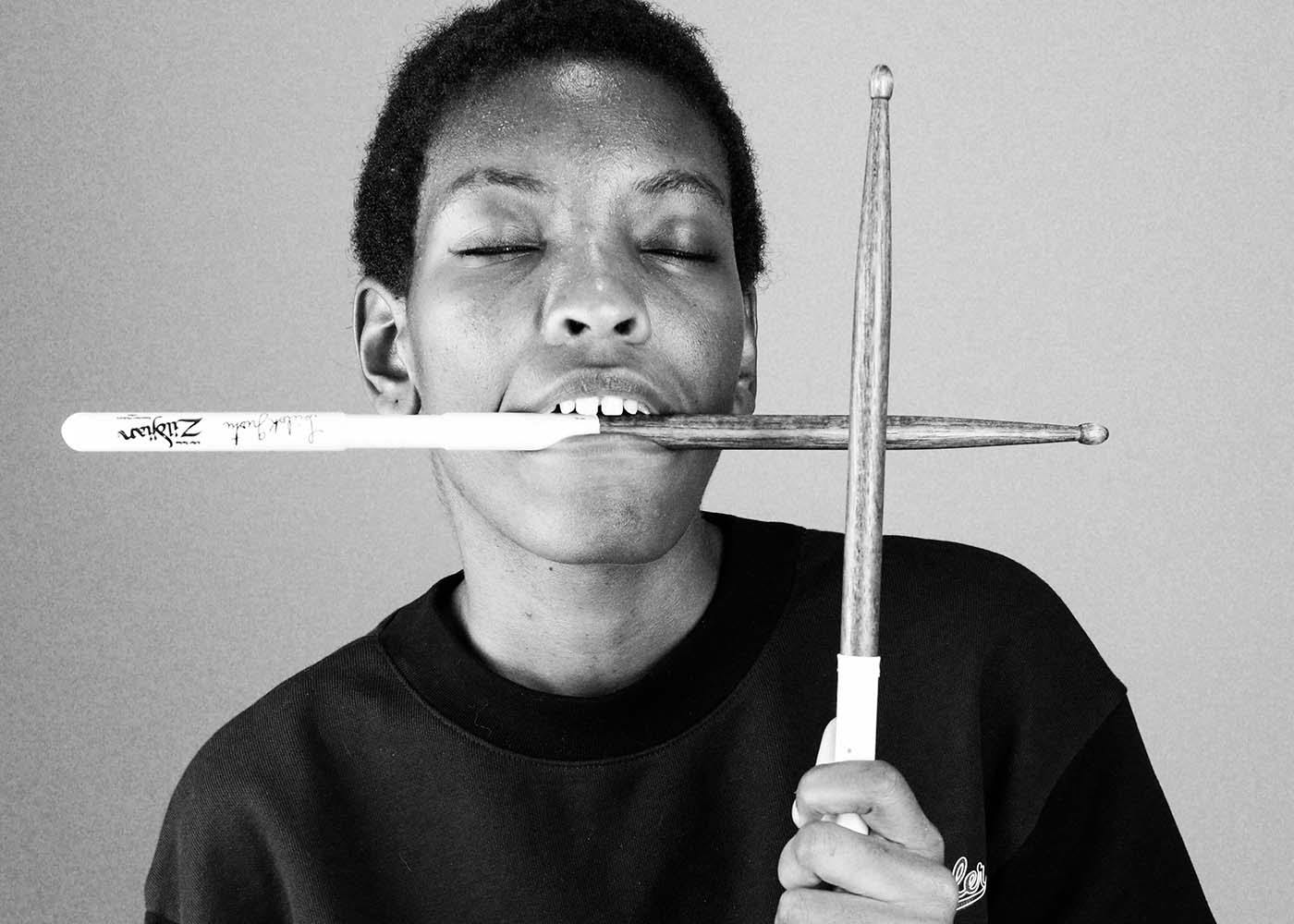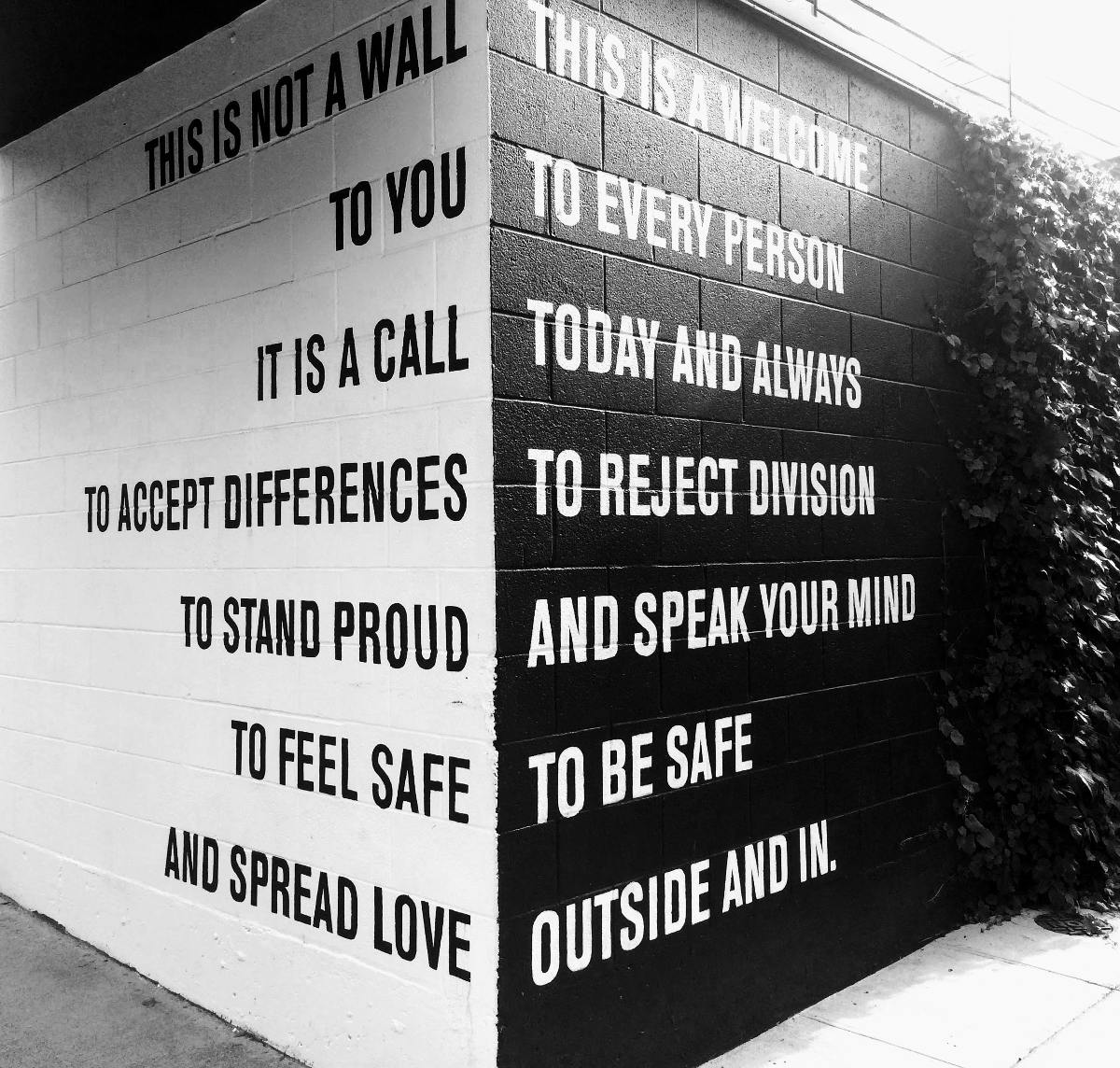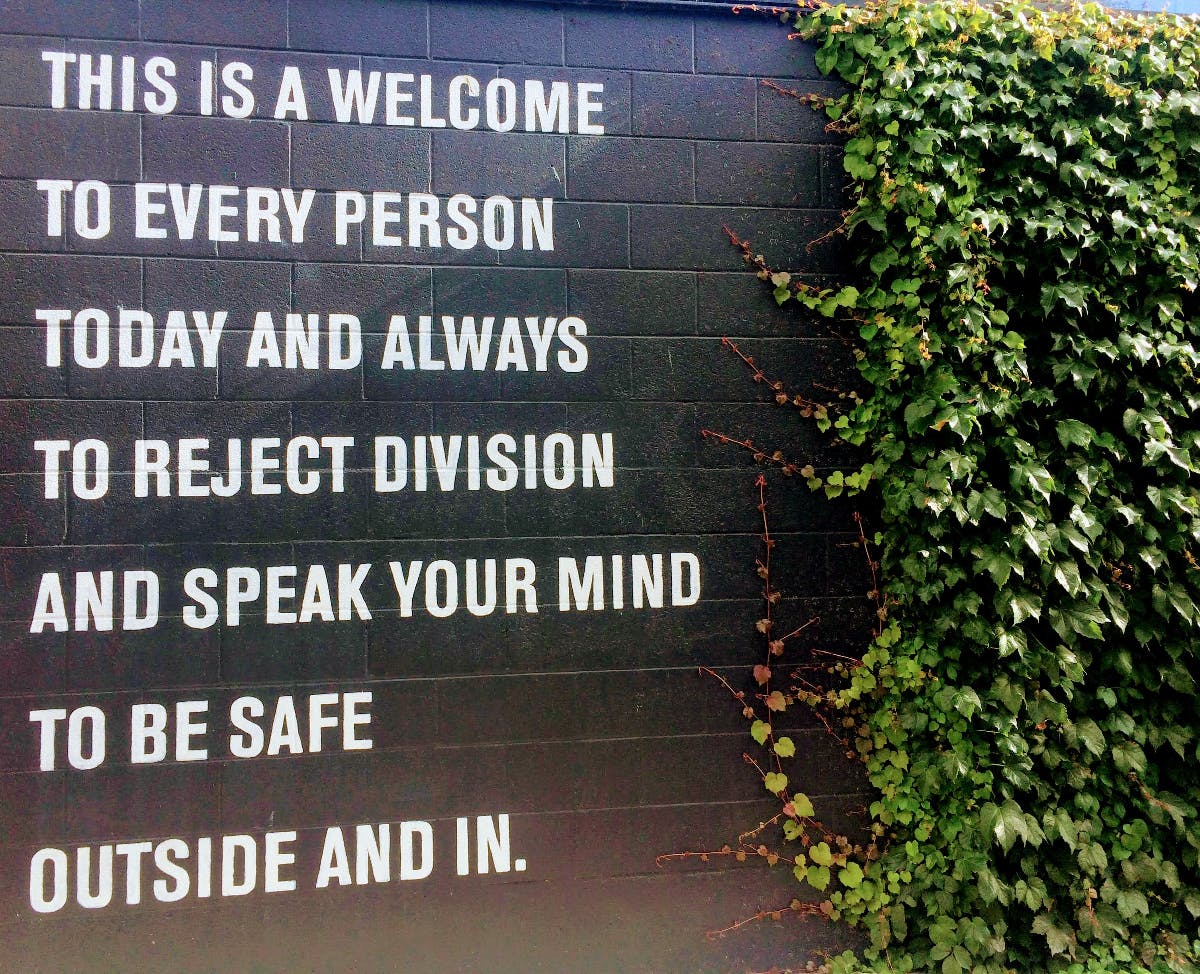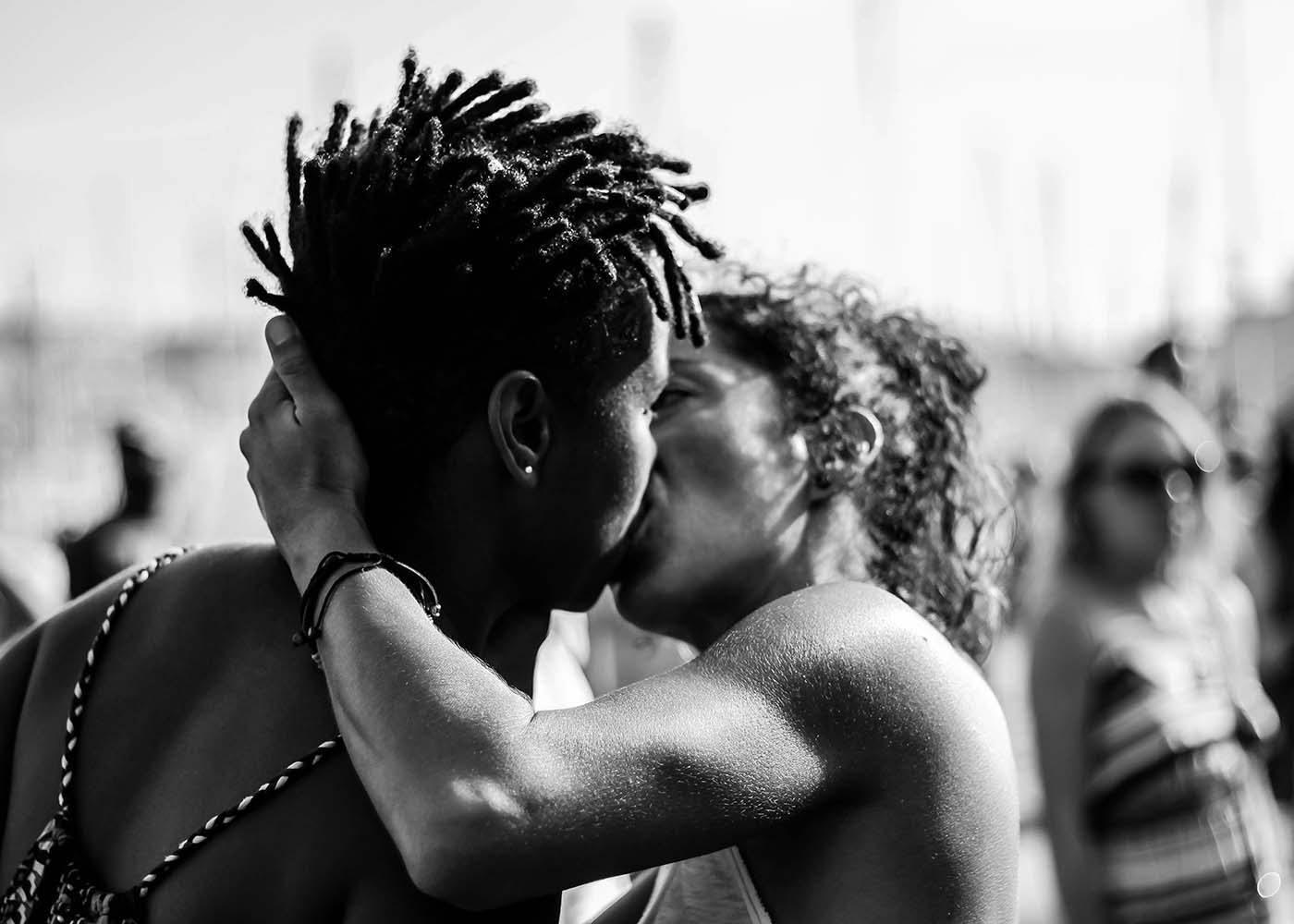
The words authentic and genuine are tossed around quite a bit those words mean something. One thing they mean is that we operate in the realm of truth. We say what we mean, we back what we believe, and we work to uphold a standard of being ourselves, being authentic to our beliefs and ideals. We’ve continuously operated that way, and that is never going to change. Our pronouns are our truth.
Writing this article has been a fascinating, eye-opening, and mind-expanding journey. What started as an assignment that could have been dashed off easily turned into a path to discovery and education that I didn’t know I needed. But, it turns out, I did.
The words authentic and genuine are tossed around quite a bit in marketing and advertising. Many times those words are just buzzwords, SEO traps for higher ranking. At ThoughtLab, those words mean something, and one thing they mean is that we operate in the realm of truth. We say what we mean, we back what we believe, and we work to uphold a standard of being ourselves, being authentic to our beliefs and ideals. We’ve continuously operated that way, and that is never going to change.
I share this because when setting out to write this article, the truth is, I knew about International Pronouns Day; it’s on my Google Calendar but, I was not 100% sure what the day was all about. That’s the truth, and that’s what opened up my eyes.
International Pronouns Day, The Facts

International Pronouns Day started back in 2018, and it continues each year on the third Wednesday of October. This year it will be on October 20.
The day began when Colleagues Genny Beemyn of the University of Massachusetts, Amherst, and Shige Sakurai of the University of Maryland reached out to a small number of colleagues from the Consortium of Higher Education Lesbian Gay Bisexual Transgender Resource Professionals to help with the development of the idea for a day recognizing and educating people about the use of pronouns. They were determined to start this initiative and see how far it could spread.
Luca Maurer, the Director of the LGBT Center at Ithaca College, volunteered to be a part of the initiative. Luca had been and continues to work on increasing the awareness of the needs of transgender and non-binary students, staff, and faculty for decades.
The team convened, an executive board was established, and off they went, working tirelessly on logistics, resources, and outreach.
Since the initiative’s inception, hundreds of groups and individuals, from a brewery in Virginia to a transgender organization in Italy, have endorsed, registered, and participated in International Pronouns day.
More than a hundred college offices and organizations, and professional associations in the education sector have also endorsed and registered. Some of these groups include the Association of American Colleges and Universities, ACPA—College Student Educators International, NASPA Student Affairs Administrators in Higher Education, and the National Association of Diversity Officers in Higher Education. On top of this, endorsers include organizations from over a dozen countries; Australia, Belgium, Canada, India, Ireland, Italy, Netherlands, Philippines, Romania, South Africa, Turkey, United Kingdom, Vietnam, and the United States including Puerto Rico.
Although the initiative is still in its nascent state and most activities celebrating the day are still at a grassroots level, the number of countries and organizations that have signed on and recognized the day shows that it is growing. This celebration of defining oneself properly and recognizing its importance will gain more and more international attention and broader attention in the US as time goes on.
Accepting & Knowing.

Here began my education. I had encountered friends who had changed their pronouns, who wished to be addressed differently from the last time I had seen them. None of that seems odd, ridiculous, or an imposition to me, as some claim it is. People have a right to be addressed in a manner that fits them and makes them feel comfortable. Not a problem. However, my acceptance of these requests was passive and, frankly, naive.
It’s one thing to say, sure, that’s fine and move along; however, it is an entirely different thing to know why. The why is the most critical part of recognizing International Pronouns Day. The why was what I was missing. The reason for the pronoun change was lacking for me and, there was no one else to blame but myself.
I was quietly proud of myself because, hey, look at me, look at how accepting I am of my friends and colleagues when they state their pronoun preference. How good and woke I am. The truth is, my acceptance was hollow because I didn’t honestly know what I was accepting or what my friends and colleagues were facing when changing their pronouns.
Why It’s Important

A couple of things made me stop and rethink the necessity of International Pronouns Day. The first was coming across this fact in an article about the day:
The Journal of Adolescent Health, Dr. Stephen Russell and colleagues from the University of Texas at Austin found that chosen name use is linked to reduced depressive symptoms, suicidal ideation, and suicidal behavior among transgender youth.
Being transgender is a struggle, one that I cannot even imagine going through. Standing up for yourself, saying this is who I am, this is me in the face of fear, prejudice, lack of understanding, rejection, and the myriad of other emotional struggles that transgender people go through has got to be a nightmare. By refusing to identify them as they wish, as they see themselves, as they are most comfortable, they can easily fall into a life of depression. Depression is, in and of itself, a battle that no one should have to face alone. Denying a person their appropriate pronoun forces them into isolation. And, as the study states, that isolation can lead to far worse things.
I struggle with depression, and I know firsthand what that means. The denial and the attempts to hide my depression lead me to be an alcoholic. Rejection, isolation, and shame caused by ignoring a person’s request to be addressed by a specific set of pronouns need to be addressed. People need to be aware so that the feelings of isolation don’t grow and cause lifelong damage, or worse.
Another thing that gave me pause and made me want to understand more was this quote I saw from an anonymous poster on a message board:
Cis people: Trans people make me feel uncomfortable.
Trans People: I don’t want to go outside because some transphobe might attack and kill me.
That is a stark reality. When transgender and gender-nonconforming people are called by the wrong pronoun, it fuels marginalization, invisibility, and far too often violence and death. People who don’t understand and won’t take the time to, or people who just don’t care, can often act out their fears and misunderstandings through violence.
Awareness is Vital

For those who think that Gay Pride Month and the Pride parade are just an excuse to have a big-ass party, look deeper. Gay Pride and the Gay Rights movement wasn’t just dreamed up as a reason to party; it was created in direct response to the marginalizing and the open prejudice against LGBTQ+ people and their lifestyle that has been going on for centuries. It was started as a way to make people aware.
Aware of what? Aware of what marginalization can lead to. In the LGBTQ+ community, that lack of awareness led to the continued raiding of clubs, bars, and hangouts where the LBGTQ+ community gathered. It led to violence, beatings, murders, and a sense that these human beings should dwell in shame for some unknown reason.
That same lack of awareness regarding using the pronouns that people identify with leads to the same situations as those faced by the folks who stood at Stonewall and said enough. Young people are killing themselves because they are not understood, isolated, dealing with depression, and feel that they have to handle this alone.
Transgender and gender non-conforming people are dealing with violence, being killed because people are not aware of what they are dealing with, struggling with. And the people inflicting the violence, the killings, are ignorant, some willfully, as to what their hatred and misunderstanding are doing to their fellow citizens of this world.
So, one of the main reasons for International Pronoun Day is to make people aware and get them to understand. Like me, using the correct pronoun may seem like enough, and it is a good start; however, knowing what, understanding what the struggle and the need are about is just as important.
So, Who’s Behind All This?
The entire International Pronouns Day campaign is an independent and wholly grassroots project. The day depends on what folks will do locally and with their organizations and communities. However, an executive board was formed to shape the container of the day and keep the concept on track and in people’s minds.
International Pronouns Day - Executive Board Members
- Shige Sakurai, MBA, MA (they or ze), University of Maryland (Founder and Co-Chair)
- Crystal Huff (they), Include Better (Co-Chair)
- Courtney D’Allaird, MBA, MA (they), University of Albany (Board Member)
- Andrea Holland, MLIS (they), University of Colorado System (Board Member)
All Pronouns?
There are several different pronouns; on International Pronouns Day, the focus is on the third person pronouns, the ones used to describe a person when you’re speaking about them. Because pronouns, in English, are often gendered, many assumptions can be made about people when we speak about them. These assumptions can be uncomfortable and even dangerous. International Pronouns Day is designed to help people understand and break free of the assumptions that improper pronouns can place on people.
What Can You do?

No one is asking for money, nor are they asking you to travel to a specific site to participate in activities. As this is a grassroots initiative, you’ll want to look for events in your area. However, there are some things you can do:
- Register to get more information.
- Develop a campaign if you have questions about this, email info@pronounsday.org.
- Use the primary hashtag in posts and emails, #PronounsDay so events and posts are findable on the day.
- Ask people what their pronouns are and use them correctly.
- Educate people about National Pronouns Day and the importance of using preferred pronouns.
- Be sensitive, be aware, and be supportive in any way you can.
Colin Kutney is senior manager of HRC’s (Human Rights Campaign) state and municipal programs, and he is also transgender. Kutney says that asking someone what pronouns they use may seem strange or, perhaps offensive but, it’s not, and points out that it’s routine as we use pronouns all the time and the day helps to make asking that question, using the preferred pronoun a cultural thing we can all get used to.
Ana Flores, HRC’s senior manager of inclusion, education, and engagement, said that asking about pronouns goes a long way to a transgender, non-binary, and gender non-conforming person. Flores uses they/them pronouns and shares that when someone asks which pronouns are proper or uses the correct pronoun, they feel validated and accepted.
Validation and acceptance can go a long way to keeping the darker parts of life, depression and suicidal thoughts, at bay. So, take a moment, ask someone their pronouns, and use them.
I learned a lot by researching and writing this article. I feel better prepared to help support my friends and people dealing with getting others to understand the importance of using the preferred pronouns. I learned about the sadness and the pain behind people using the wrong pronouns and how that can lead to depression, isolation, and, worse, thoughts of suicide.
Transgender and non-gender conforming people are not asking for more than the rest of us, human dignity and kindness. It takes a moment to ask, to listen, and to use the proper pronoun. Take that moment. Be kind. Be human. It costs you nothing, and it means so very much to someone who is struggling to keep their identity and feel accepted.
If you are Transgender or non-gender conforming and have suicidal feelings or know someone who is, here is an excellent article with help and advice from the Suicide Prevention Center. And, if you feel that you might harm yourself, call the National Suicide Prevention Prevention Lifeline at 800-273-8255.
Transgender, non-gender conforming, non-binary, genderqueer, agender, bigender, and more are all people, human beings, and deserve what all human beings deserve; fundamental human rights. Learn more, understand more, and like those of us at ThoughtLab, be part of the solution.

